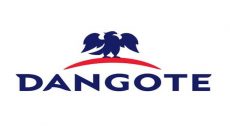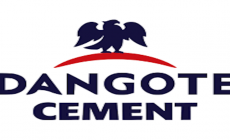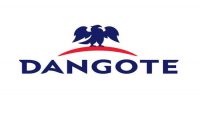More than 600,000 small shops and open-air markets dominate the retail landscape in Nigeria, accounting for 97%+of national sales of food, beverages, and personal care products, according to a report released by Boston Consulting Group (BCG), today.
This is despite the many imposing challenges traditional retail face in Africa, including the expansion of modern retail, the nascent rise of e-commerce, and changes in consumer behaviour that were accelerated by the COVID-19 pandemic.
The report ‘The Future of Traditional Retail in Africa’ reveals that despite the advance in supermarkets, convenience stores, and other modern formats, African consumers on average continue to buy more than 70% of their food, beverages, and personal care products from the continent’s more than 2.5 million small, independent shops.
In BCG’s study of more than 4,500 small retailers in five of the biggest African markets: Egypt, Kenya, Morocco, Nigeria, and South Africa, it has become evident that the traditional retail sector will remain at the core of African commerce in all but a handful of nations, such as South Africa, and that there is strong momentum for change in the traditional retail experience.
“The willingness of traditional retailers to diversify, and embrace digital solutions coupled with the growing interest of investors to provide digital solutions show they will find opportunities to grow and remain the cornerstones of African economies in the future,” said, Stefano Niavas, Managing Partner in BCG Nigeria, and co-author of the report.
The report noted that modern retail remains very fragmented and is led by international hypermarket brands. Modern chains are struggling to expand due to currency devaluation, underdeveloped and inefficient transportation infrastructure, poor logistics capabilities, inadequate electrical power, and other complex challenges.
More importantly, the digital maturity of shop proprietors is also substantially higher than the national average. The level of financial inclusion varies widely across the regionand is generally in line with the general population. While 85% of Kenyan shop managers have a bank account, only 40% of their counterparts in Nigeria have one.
High numbers of African retailers also reported that they feel under pressure from modern retailers. In response to such challenges, traditional shops are diversifying well beyond daily essentials, such as fresh and packaged foods and home cleaning and personal hygiene products. Many small retailers now sell telecom products, such as prepaid cards and SIM cards.
New Digital Solutions
Several digital technology providers are addressing inefficient distribution systems that often force retailers to close their shops for several hours so they can go purchase goods from wholesalers.
The Nigerian B2B digital marketplace Alerzo, for example, enables more than 100,000 users—90% of whom are women—to purchase inventory directly from manufacturers, receive and make cashless payments, and better track their revenues.

Digital marketplace in Nigeria such as Alerzoalsofacilitates a portfolio of digital services, including airtime purchases, bill payments, and peer-to-peer transfers. In the long run, such platforms aim to provide super apps with a large selection of services. This would enable them to totally digitize traditional retailers and integrate them into the formal economy. Start-ups are also providing working capital and financial management systems to help traditional retailers grow and run their businesses more efficiently; however, they must overcome a lack of awareness and training among retailers.
The Future of Retail in Africa
The study found that traditional retailers will continue to dominate. But to thrive, they must modernize by offering new services and leveraging opportunities offered by digital solutions.
Niavas added, “Based on our analysis, many small retailers are already aware of theevolving retail landscape and are ready to improve their business premises, quality of products and expand across the country.”
Based on current trends, the modern retail sector in Nigeria, even though it is growing fast, is likely to remain small, and still may not account for more than 5% of retail sales by 2030. Due to structural problems in Nigeria mentioned earlier, foreign investors are likely to remain hesitant about entering the market.
Given the central role that traditional shops will continue to play in Africa’s retail landscape, there will be a number of opportunities for various players in the ecosystem as the environment evolves.
Investment funds can find opportunities to provide capital and management expertise that will enable local modern retail chains to scale up in new cities.
An active start-up ecosystem is interested in providing digital solutions that will solidify the role of traditional retail in Africa and enable the sector to become the commercial interface across the continent.
Digital solutions can help manufacturers of fast-moving consumer foods improve their control over go-to-market strategies and provide data to better understand retailers.
Banks and telecom providers can achieve growth by developing new business models and offers that are adapted to traditional retailers’ needs.























